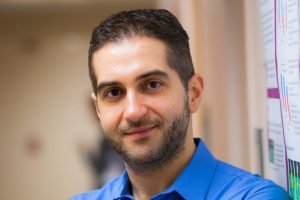
Professor, Computer Science Department, Rutgers University
Amazon Scholar, Robotics AI, Amazon.com Inc.
Research Area: Robotics
I work at the intersection of robot planning, learning and perception. I am interested in designing practically efficient algorithms that make robots solve tasks in the real-world in a way that allows to argue about properties and the conditions under which the methods work. Some of the problems that my group is currently working on include:
- integrated perception and planning tools for manipulation with applications in domains, such as logistics, manufacturing and service robotics;
- learning to plan and control for systems with significant dynamics, including for compliant, under-actuated and soft robots, which relate both to manipulation (e.g., soft adaptive hands) and locomotion (e.g, tensegrity robots for space exploration);
- dealing with combinatorial challenges in manipulation that arise from coordinating multiple robotic arms or dealing with multiple objects in cluttered scenes.
Short Bio
Kostas Bekris is a Professor of Computer Science at Rutgers University in New Jersey and an Amazon Scholar with Amazon Robotics since 2019. He is working in algorithmic robotics, where his group is developing algorithms for robot planning, learning and perception especially in the context of robot manipulation problems, robots with significant dynamics and a focus on taking advantage of novel soft, adaptive mechanisms. Applications include logistics and manufacturing as well as field robotics. He is serving as Editor of the Intern. Journal of Robotics Research (IJRR) and has served as Program Chair for the Robotics: Science and Systems (RSS) and the Workshop on the Algorithmic Foundations of Robotics (WAFR) conferences. His research has been supported by NSF, DHS, DOD and NASA, including a NASA Early Career Faculty award.
Background
Kostas moved to Rutgers University in 2012 after serving as Assistant Professor at the Department of Computer Science and Engineering of the University of Nevada, Reno (UNR). He received his Ph.D in Computer Science from Rice University in 2008 under the guidance of Prof. Lydia Kavraki under the topic of Informed Planning and Safe Distributed Replanning under Physical Constraints. He received his BS in Computer Science from the University of Crete, Greece in 2001.
